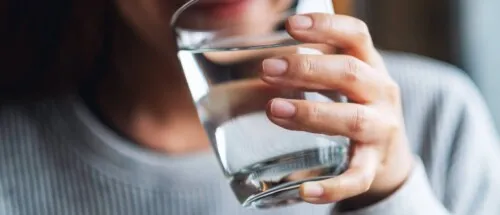Across the globe, various cultures embrace cooking as the reason for bringing together loved ones. For many, countless memories surround food; whether it be your family reunion, a wedding, or nightly dinners, food’s enjoyment goes hand in hand with love and laughter. But are you aware that hard water can affect these special meals by altering your food’s flavors, colors, and textures?
Leaf Home Water Solutions is here to help ensure that hard water is not impacting those lifelong memories. So, you can continue to enjoy good food, great memories, and even better company.
What is Hard Water?
In short, hard water is a high concentration of dissolved minerals running throughout many water systems. These minerals can range from high calcium levels to magnesium, chlorides, and sulfates. There is a wide array of contaminants and how these minerals can be filtered out, but this greatly depends upon the location of your water source.
When cooked with hard water, those minerals and contaminants transfer into your food. Depending on the mineral, it can significantly affect various cooking styles, regardless of how good of a chef one is.
How Does Hard Water Affect Baking?
Hard water can significantly affect baking, as it changes the fermentation process of gluten and yeast. As a result, even the most renowned bakers can struggle to get the chemistry right when baking with hard water.
Gluten is a significant part of most baking recipes and has a specific process that entails the correct form of bonding. However, baking with hard water can affect fermentation, resulting in the yeast and water not correctly bonding. In addition, hard water alters the chemistry of the baking process, slowing down the absorption rate of proteins in the flour. The delay of fermentation can result in an undesired texture of the dough, which will translate into the final product.
When making certain types of bread, like sourdough, chlorine can impact the outcome of the loaf. For example, when baking a sourdough loaf of bread, the water needs to sit out for a minimum of twelve hours to ensure that the chlorine evaporates out of the water. Finding the proper balance of water is crucial in baking, as too hard and too soft of water can create unwanted results.
How Does Hard Water Affect Cooking?
Hard minerals found in various water sources can also impact even the simplest forms of cuisine. For many, boiling water is one of the first skills learned in cooking; useful for meats, vegetables, grains, and much more. However, this cooking style is sometimes associated with bland or poor flavor. What if it was not because of the chef but the water?
Unusual flavors, smells, and appearances can be the aftermath of boiling food with hard water. As the minerals dissolve, the food absorbs them, leaving the meal with the same taste and smell as said water. Meat absorbs the flavor and scent most, while vegetables become blanched, pale, and flavorless. Making your sauces and dressings at home also has many benefits, but most recipes require water to thin the consistency. If your home’s water has high levels of calcium, magnesium, chlorides, or sulfates, the taste and smell will be evident in the sauce.
How Can You Fix Hard Water?
Water sources vary considerably based on the level of hardness, contaminants, and potential solids running through the system. Since each water source is unique, testing your water to find the perfect treatment for your home is crucial. For example, a
is an advanced micro-filtration system ideal for any home’s kitchen. Other options include UV disinfection, conditioners, softeners, and whole home water treatments. Luckily, Leaf Home Water Solutions carries all these systems and more and provides a free at-home water test!
Leaf Home Water Solutions has many helpful systems based on your home’s unique needs so you can embrace your inner chef and keep the culture and love behind cooking alive. If you don’t want to let hard water get in the way of your memories, schedule your free water test, and we’ll determine the proper treatment for your home.



